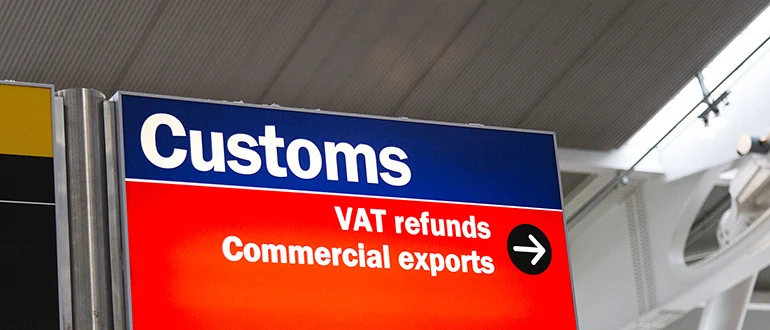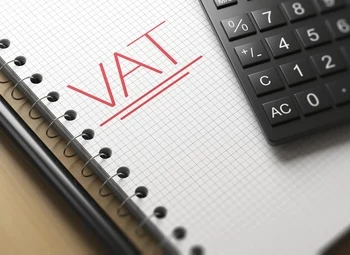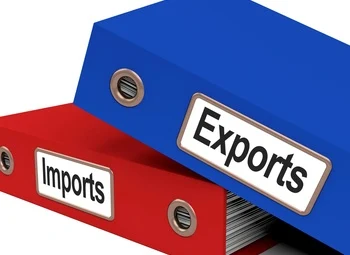
Taxes, Duties, and Import Restrictions in Germany for 2022
Now that we’re heading into the new year, it’s a better time than ever to look at some of the different import restrictions, taxes, and duties you’ll need to know as a business or a private person that is planning house removals to Germany. With this in mind, we’re on hand today to give you some top ideas to help you ensure that, no matter what this year might throw at you, you’re ready to face the challenges with your shipments without having to worry about overwhelming costs, hard to overcome restrictions, or products being prohibited across borders. So, why not read on to learn more about all of the different requirements your business will need to prepare for this coming year; it might just help things go smoothly now that we’re well into the Brexit transition period, overall. Are you planning moving to Germany after Brexit? Check our simple guide to make the things easier and cheaper.
Paying Taxes and Duties on Entry to Germany
If you are planning to import products to Germany cross border, your shipment will need to be cleared by the German customs authorities before they can be accepted into the country; moreover, you will likely be liable to pay customs duties and Tax on the shipments. If these payments are not made, you will likely find that your shipment is delayed at customs until such a time that it is applicable.
Tax thresholds represent the value over which taxes must be paid to the customs team for imported products, which is now set to €0 for German imports; as such, every product imported into Germany from another country across borders will now need to pay tax. This is usually calculated based on the Cost Insurance Freight method, commonly abbreviated to CIF, which results in taxes being based on the value of the item. The item’s value also includes the cost of the goods and any related costs to ship the product into Germany.
Latest Updates to EU VAT Laws
 VAT – no matter how much experience you have, chances are, you find this just as much of a headache as the rest of us! Nevertheless, for 2022, you’ll need to ensure that your business is fully compliant with the new VAT legislations that were put in place for July 2021. Luckily, though, we’ve done our best to summarise the new changes briefly as follows.
VAT – no matter how much experience you have, chances are, you find this just as much of a headache as the rest of us! Nevertheless, for 2022, you’ll need to ensure that your business is fully compliant with the new VAT legislations that were put in place for July 2021. Luckily, though, we’ve done our best to summarise the new changes briefly as follows.
When your customer purchases a service from your team, they’ll need to pay VAT on the price; as standard, for all shipments valued at €150 or less under the new restrictions and regulations we outlined above, VAT falls at 19%. Indeed, this new €150 VAT threshold is understandably frustrating for businesses arranging shipments into Germany, but it’s a necessity for all EU countries with the new rules – including Germany – and so all sellers must charge VAT on their sales accordingly. Meanwhile, for products valued at €150 and greater, the normal rates will be applied.
It’s worth noting that VAT is very different from GST taxes, which are charged at point-of-sale but are later recouped to the seller. These represent a flat-rate percentage and are un-variable, unlike VAT charges which may differ depending on the value of the product or service in question.
Fortunately, the latest updates to EU legislation have at least made the process of VAT tax filing simpler, thanks to the introduction of an electronic tax payment portal. For low value orders up to €150, this now means that importers will only need to complete a single monthly VAT return for small orders, rather than having to complete a return for every single order; this, in turn, will help ensure that those who import on a regular basis have a lot less on their plates in terms of paperwork.
Import Duty for Products in Germany
At this point, we have outlined VAT and GST for your business – but you’ll also need to consider the import duties applied to products imported into Germany.
There are several product categories which do not incur any import duties, including mobile phone devices and computer technologies, home décor, toys, watches, jewellery, gaming products, and books or collectible items. Thereafter, though, other product categories are liable to pay VAT, including the following:
- Audio and video: 1.1%
- Pet Accessories: 2.2%
- Home appliances: 2.5%
- Luggage and battery accessories: 3.7%
- Cameras: 4.2%
- Health and beauty products: 6.5%
- Dry food and supplements: 9%
- Fashion and accessories: 12%
Documentation to Import into Germany
 At this point, we’ve outlined some of the key taxes and duties you will need to pay to ship products into Germany – but what about the relevant documentation? Indeed, while none of us like the thought of having more paperwork to do, it’s sadly a fact of life – and will prove necessary when it comes to shipping items into Germany, too. Therefore, we highly recommend that you consider the following paperwork requirements before attempting to ship any products into Germany to stay safe; there’s no point getting caught out at the last minute, after all.
At this point, we’ve outlined some of the key taxes and duties you will need to pay to ship products into Germany – but what about the relevant documentation? Indeed, while none of us like the thought of having more paperwork to do, it’s sadly a fact of life – and will prove necessary when it comes to shipping items into Germany, too. Therefore, we highly recommend that you consider the following paperwork requirements before attempting to ship any products into Germany to stay safe; there’s no point getting caught out at the last minute, after all.
And, if your documentation isn’t up-to-standard, you may also find that your shipment gets stuck at customs – something that’s likely to cause far more significant issues than a few bits of documentation.
Single Administrative Document – covers details including VAT, customs duties, and customs declarations.
- Commercial Invoices – a commercial invoice should be provided that outlines the exchange of goods, and must include details such as the shipment value, invoice date, and the like.
- Dangerous Goods Forms – dangerous products require a dangerous goods form, but these are usually straightforwards if you have the correct packaging and labelling in place.
- Certificate of Origin – states the product’s territory of origin, which may require proof as a certificate or origin
- Economic Operator Registration and Identification Form – non-EU shippers will need to hold an EORI number in order to lodge customs declarations. These are assigned to import companies but are not required for personal use.
Choose a Hassle Free Approach to Shipping
Of course, if your business is already exceptionally busy and doesn’t have time to dedicate to numerous different documents, it’s not the end of the world; indeed, when you choose our services including removals to Berlin, we can manage all of the paperwork and nasty logistic requirements on your behalf, so that international shipments are made a lot easier and less painful for your business and help you to get through the customs check without the headache or difficulties. What’s more, it’s a far more hassle-free solution, making it an excellent option for anyone looking to import into Germany.
